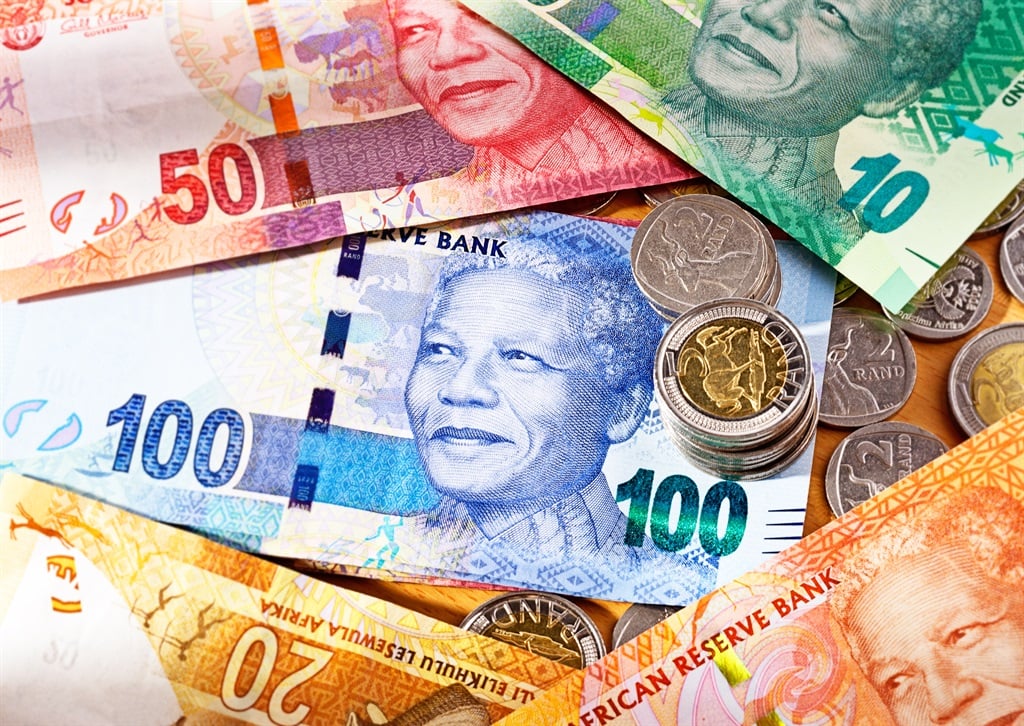
The reasons for not using money from the Gold and Foreign Exchange Contingency Reserve Account are political, not legal or economic, say Gilad Isaacs and Kelle Howson.
- For more financial news, go to the News24 Business front page.
The Minister of Finance is widely expected to announce spending cuts in his statement in Parliament on Wednesday, because of a shortfall in tax revenues. Yet the National Treasury has a democratic duty to use available resources to preserve and improve basic rights and services. One such resource is the R459 billion sitting in a government account in the Reserve Bank.
The South African Reserve Bank's Gold and Foreign Exchange Contingency Reserve Account has come into the spotlight in the build-up to the Medium-Term Budget Policy Statement tomorrow.
In an open letter signed by over 100 policy experts and civil society organisations, the Institute for Economic Justice (IEJ) has proposed drawing down on this reserve account.
Leveraging these funds is one of a detailed set of proposals made by experts for how the National Treasury can preserve and strengthen spending people rely on, while getting the economy on an inclusive growth path. There are reasonable alternatives to wholesale cuts.
What is the Gold and Foreign Exchange Contingency Reserve Account?
The South African Reserve Bank accumulates foreign currency and gold reserves, mainly US dollars in the form of debt issued by the United States' central bank, the Federal Reserve Bank. It holds around R1.1 trillion in gold and foreign exchange reserves.
These reserves are used (or can be used) to finance foreign transactions or influence the rand exchange rate. They are also seen as a buffer against the risk of capital flight - that is, foreign investment fleeing South Africa - and therefore help to maintain financial markets' confidence in South Africa.
The contingency reserve account represents realised and unrealised profits arising from changes in the value of these foreign exchange and gold reserves. For example, say the Reserve Bank uses R17-million to purchase Federal Reserve Treasury Bills worth $1 million when the exchange rate is R17 for $1. Then the exchange rate moves, and the $1 million in Treasury Bills are now worth R19-million. The Reserve Bank has made a R2 million profit, and this amount is credited to the contingency reserve account.
READ | Carol Paton | What the Gfecra? Could 100 economists be wrong?
This profit is realised when the asset(s) - the $1 million in Treasury Bills - is sold. It remains 'unrealised' when the underlying asset(s) remains unsold but is worth more than before. How much of the R459 billion is realised as opposed to unrealised profit is not disclosed.
Who do the profits belong to?
The Reserve Bank Act says that profits from the account are owed to the Government.
The contingency reserve account itself is "managed by the Bank on behalf of the Treasury", according to the act. "Any credit balance on the Gold and Foreign Exchange Contingency Reserve Account shall accrue to the Government as a profit and shall be for the benefit of the State Revenue Fund." The profits therefore represent government funds belonging to the people of South Africa.
Those opposed to the use of this money at this time argue that the part of the profits which are unrealised cannot be accessed. But the Reserve Bank has two ways of transferring any unrealised part of the funds into the government's main account: it can sell assets the Reserve Bank owns, or it can raise the money in the market. The most logical assets to sell would be a portion of the reserves themselves.
There is an argument that, though there may be better things we can do with the money, we should not sell any of our rainy day reserves. It is true that selling some would leave South Africa with fewer buffers against external shocks. But if it would save South Africa from the reported 'fiscal crisis' and protect people from starvation, there is almost certainly room to sell some reserves.
On the other hand, the Reserve Bank could raise the money in the market, from the private sector. The Reserve Bank does this all the time, as private banks hold their own reserves (and other balances) in accounts with the Reserve Bank. The Bank pays interest on those at the prevailing repo rate (the interest rate that the Reserve Bank sets). So this would mean costs for the Reserve Bank. But the Reserve Bank is in a very strong financial position and could easily absorb these costs. An arrangement could even be made that the contingency reserve fund itself bears the costs, therefore costing the Reserve Bank nothing.
Political issues
Some point out that if, say, the rand strengthened suddenly, the profits in the contingency reserve fund would be eroded. This is true, but the rand would need to appreciate enormously, and nothing short of an economic miracle would cause that. Further, we are not proposing cleaning out the whole account. Maintaining a buffer and having these funds bolster the Bank's balance sheet is appropriate. But we're talking about a revenue shortfall of R52.4 billion and a balance in the contingency reserve fund of R459 billion.
Legally, it is clear from the Reserve Bank Act that any profit in the contingency reserve account "may, at such times as the Treasury and the Bank may deem desirable, be credited to the State Revenue Fund." When in 2002-3 the account was in deficit, the government, with Parliament's consent, paid into the account without fuss to the tune of R28 billion over four years.
So the technical and legal challenges are easily surmountable. The nub of the issue, as is often the case, is political.
The argument goes that because politicians can't be trusted, the National Treasury and the Reserve Bank should conspire to keep other ministers' hands off these funds. But whatever we think of government's current spending habits — and the IEJ has been unequivocal that wasteful spending is occurring and must be stopped — it is profoundly cynical to deny the government funds which belong to it in order to force it to implement austerity.
Ultimately, this is less about the specific mechanisms through which rights should be realised, than the fact that feasible options are available to tackle hunger. The National Treasury and the Minister of Finance have the capacity and the responsibility to do this, and they must be held accountable for doing so.
The National Treasury is accountable to our democratically elected officials, and to the public — not the other way around.
Dr Gilad Isaacs is the executive director of the Institute for Economic Justice and Dr Kelle Howson is a senior research consultant.
Views expressed are not necessarily those of GroundUp. News24 encourages freedom of speech and the expression of diverse views. The views of columnists published on News24 are therefore their own and also do not necessarily represent the views of News24.




 Publications
Publications
 Partners
Partners












